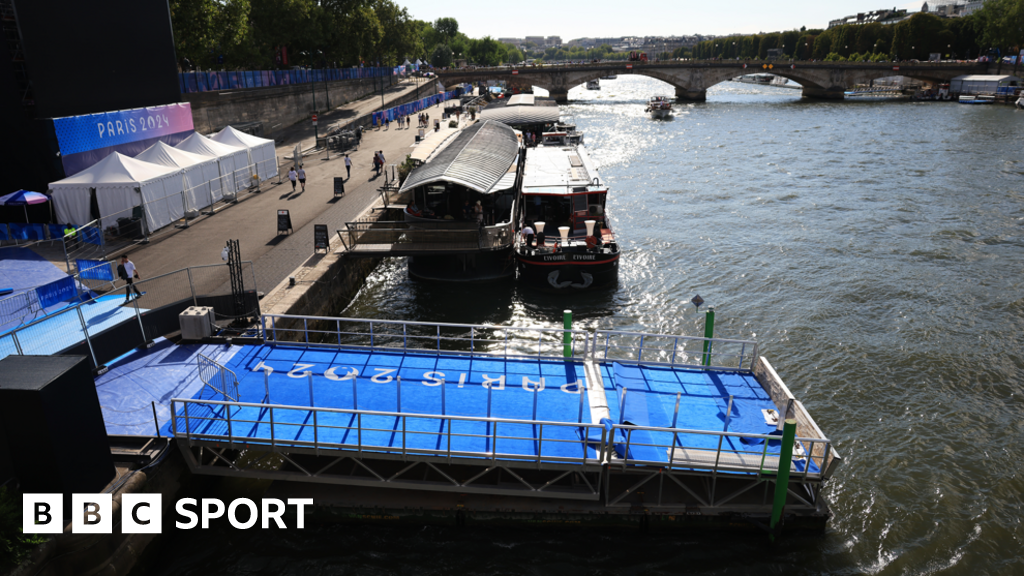Locating the start of the triathlon at the Seine was considered a historic, albeit remarkable, decision.
Critics may argue it was more about aesthetics, given swimming in the river has been prohibited for over 100 years because of its high levels of pollution and the risk of disease.
However, French authorities have invested 1.4bn euros (£1.2bn) to make the Seine swimmable as a key legacy of the Games.
That work includes the construction of a giant underground basin the size of a dozen Olympic swimming pools to capture excess rainwater and keep wastewater from flowing into the river, renovating sewer infrastructure and upgrading wastewater treatment plants.
Despite that, levels of E coli were 10 times more than the acceptable level imposed by sports federations as recently as June.
France currently lags behind the European Union’s average score, external for top-quality bathing water conditions.
British triathlete Vicky Holland, who took bronze at the Rio Games in 2016, told BBC Sport: “This is something that is a huge deal, not just in our sport, but for the wider world as well.
“There are less and less bodies of water in the world that are safe to swimmers and that’s a real shame. It really highlights that we really need to try and clean up these bodies of water. I know that here with Paris, that is something they tried to do.
“They spent a huge amount of money trying to clear up the Seine and they have done a really good job of it, it just quite hasn’t meant the standard yet.”

